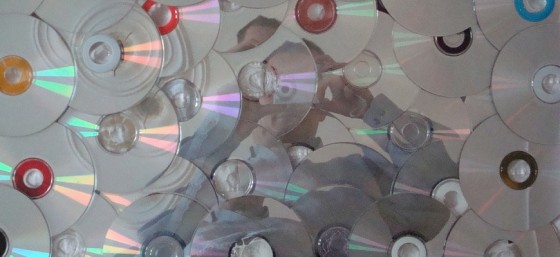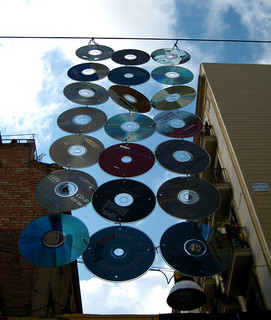One of my favorite minimalists shared a post by Lindsay Schauer about the eight things you can live without on Twitter last week, and it kicked off a legal discussion and he asked me to comment. One of the things Lindsay said to get rid of is your CD collection – burn them to your hard drive and get rid of the physical CDs themselves. That makes a lot of sense. A single CD doesn’t take up much space but a collection of jewel cases does.
I put my CDs in a CD binder and chucked the cases years ago, but can you legally copy a CD you own and keep that instead of the disk? Probably.
The copyright holder (likely the record label or the artist) controls when/where/how their work is copied, distributed, and performed. When you buy a CD, you only purchase the tangible object – not the intellectual property rights. Just like when you want to get rid of an old book you can give it away, throw it away, or sell it to a second hand store, the same is true for CDs. However, you can’t make a photocopy of the book so you can keep the original for yourself and give a copy to a friend. The same is true for CDs. (Yes, all those copies of CDs you burned from or for your friends are probably illegal.)
If you legally purchased a CD, you can make a copy of it for “archival” purposes. This prevents you from having to buy a new one in the event the CD gets lost, damaged, broken, or used as a Frisbee, coaster, or for an art project. The same rule applies for making a copy of computer software that you’ve legally purchased.
So can you take Lindsay’s advice and copy all your CDs to your hard drive and chuck the originals? Yes, if you legally purchased the albums. You can only make one copy for yourself. You can’t make copies for your friends.
The purpose of the copyright law is to give artists rights in their work and allow them to profit from selling it. An archival copy is supposed to be a backup for the original, so some copyright holders may frown on people who make an archival copy of a CD and sell the original. (You’re starting to look like the guy who sells a book to a friend but keeps a photocopy of it for himself.) There’s an argument that you’re committing copyright infringement; however, the amount you’re making isn’t really cutting into their profits, and the artist might be happy that more people are being exposed to their music. If someone is concerned about their rights and maximizing profits, they might be less upset if you throw the CD away or repurpose it into a coaster so anyone else who wants the album has to buy it.
The good news in copyright infringement cases is the only person who can come after you for copyright infringement is the copyright holder. If they don’t know what you’re doing or don’t care, they will never come after you.
If you want to chat with me about this or any other topic, you can connect with me on Twitter, Google+, Facebook, YouTube, LinkedIn, or you can email me.
You can also subscribe to the Carter Law Firm newsletter.
Please visit my homepage for more information about Carter Law Firm.

